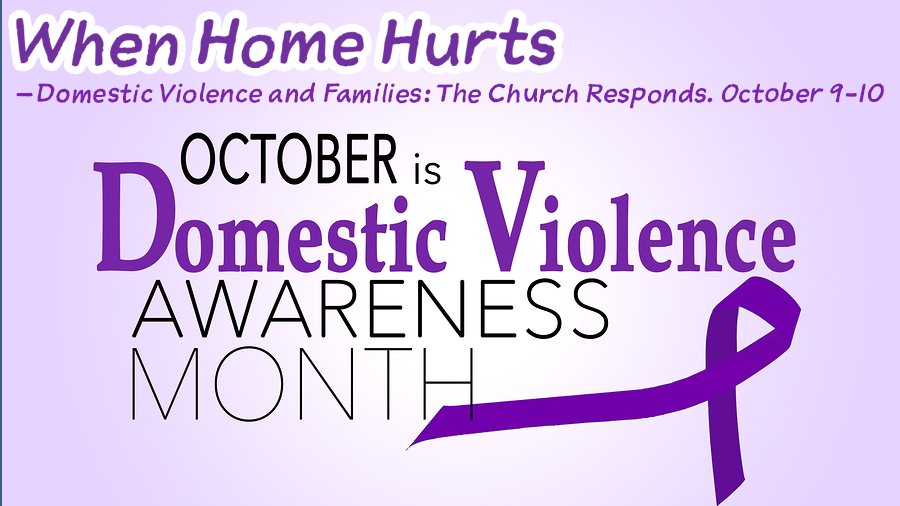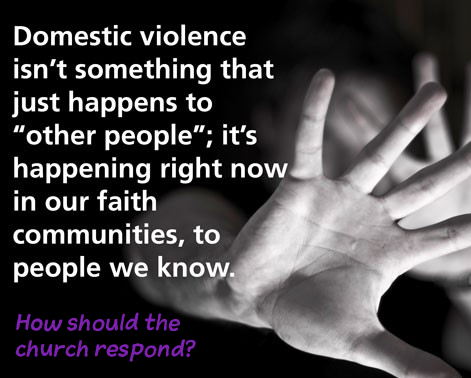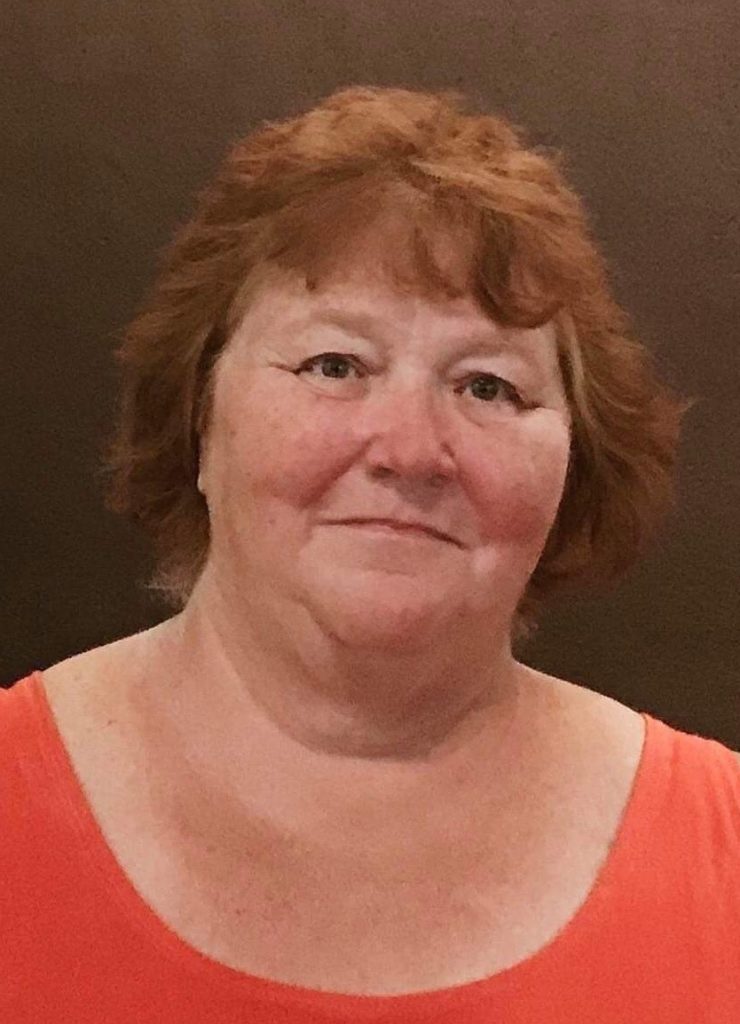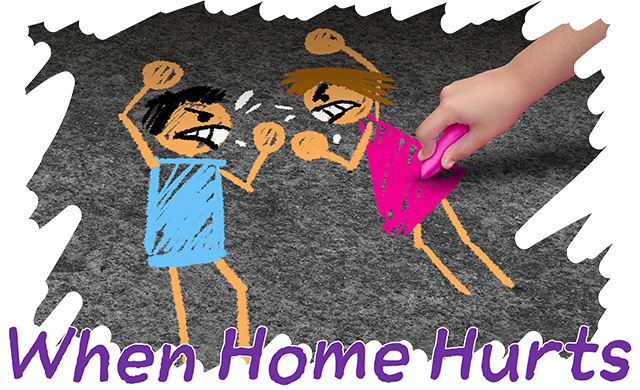
By John W. Coleman
October is annually National Domestic Violence Awareness Month, a time when attention to the ongoing crisis in domestic and intimate-partner violence increases thanks to the media and planned educational events. The Eastern PA Conference’s Domestic Violence Committee sponsored its third annual domestic violence (DV) seminar this past weekend, Oct. 9-10, as a two-session video-conference on Zoom.
Experts say the same COVID- 19 pandemic that is forcing groups to hold events online rather than in person, is also causing an increase in DV, as many families have been homebound for months to avoid exposure to the virus. As one expert puts it, “Good marriages have gotten better; but bad marriages have gotten worse.”
After addressing the impact of DV on women and men the past two years, the three-year-old committee focused on children and families in its first virtual seminar on Friday evening, and Saturday morning. The theme was When Home Hurts: Domestic Violence and Families—The Church Responds. (Register Online Now! Download the flyer!)

“We will learn more about this destructive social crisis that hurts individuals, families and communities, and we will explore how churches can respond” the committee had said. Its program goal is “Protecting Human Life, Promoting Healthy Families.”
“Domestic Violence is a health issue for the entire family that is involved in experiencing harm in the home,” said Deaconess Barbara Drake, Global Ministries Secretary and Chairwoman of the Conference Church & Society Work Team. “Due to the increased amount of time that families are spending in their home settings during the pandemic, the need for awareness of this major problem is even greater this year.”

Keynote speaker Jody Anderson and expert panelists, DV survivors and attendees shared their wisdom and their witness—that is, their knowledge, diverse views and often-painful but enlightening experiences with DV.
Anderson, a member of West Lawn UMC in Reading, co-chairs the Domestic Violence Committee, along with the Rev. Jacqueline Hines. She highlighted insights from her new book, Band of Angels, scheduled for publication in October. A longtime professional and church volunteer in social work and social justice, the certified child trauma specialist has counseled children and youth. But she also directed domestic violence agencies and launched a residential program to help homeless female veterans heal from sexual assault in the military.
“Forgotten Victims” is the title of Anderson’s keynote. “It will be inspirational for anyone looking for good soil in which to plant their seed of faith,” she promises. Her book, written out of love, is about “my band of angels,” the first children’s group she counseled in Lake Tahoe, Calif. “It is part-true novel, part-technical (as a group-activities guide), and part-personal testimony.”
Working in a hospital psychiatric unit, a women’s services center in Reading, PA, and other settings gave Anderson valuable insights, experience and passion for doing group and individual therapy among people “with every diagnosis imaginable.” In working with children, teenagers and seniors, she found “domestic violence in the forefront in many cases.”
“Domestic violence knows no race, religion, economic status or sexual preference,” she said. “It can affect anyone. It is about power and control, not about anger.” She shares further that “children are not just witnesses to domestic violence in the home; they are victims as well. And many experience and exhibit symptoms of trauma, with which I am very familiar.”
As she learned and explored therapeutic solutions, Anderson found God calling her deeper into this field and also into her Christian faith. She was a “seeker” who started out as a Methodist in her youth but later wandered from Buddhism to Mormonism and other pursuits. She will share parts of her intertwining spiritual and professional journeys in her keynote message, as she does in her book.
Attendees also heard a panel of DV survivors share their compelling, poignant stories of domestic abuse, healing and recovery, and what they learned from those experiences. And a panel of therapeutic practitioners offered their wisdom in answering the question “How Can the Church Respond Effectively?” They will include:
- A marriage and family therapist who directs our conference’s Young People’s Ministries program.
- A longtime county DV services director and former shelter director.
- Several clinical counselors who work with boys and men.
- A Licensed Local Pastor involved in helping domestic violence victims.
- A researcher and author who explores the church’s role in addressing domestic violence.
“I applaud the tireless efforts of our Conference Domestic Violence Committee,” said Bishop Peggy Johnson. “With COVID-19 there has been increased incidences of domestic violence behind closed doors. The church needs to be aware of the issues and how to educate our congratulations. Lives can be saved and healing can come.

Read “Conference to explore Domestic Violence and Families” to learn more about this event and these diverse, expert panelists.
Read Descriptions of the Saturday workshops
Also, more resources for National Domestic Violence Awareness Month:
Ex-abuser to churches: ‘You can help stop domestic violence epidemic’
A former domestic abuser turned non-profit leader has launched a new national campaign challenging churches across America to help “halt the epidemic of domestic violence.”
Michael Clark — an ex-abuser jailed twice for domestic violence — is calling on America’s churches to tackle the nation’s domestic abuse crisis head-on during October, which is National Domestic Violence Awareness Month. Experts believe the COVID-19 pandemic lockdown caused a spike in domestic abuse.
“There’s likely someone in every church — perhaps in nearly every row or pew — who’s a physical or emotional abuser,” said Clark, founder of the Ananias Foundation, a faith-based organization that takes a different approach to stopping partner-to-partner violence. While most domestic violence groups focus on helping the victim, Clark’s organization is unusual because it focuses on reforming the “villain,” with the goal of ending the cycle of violence. Read more…
From the General Board of Church and Society
October is Domestic Violence Awareness Month. To understand domestic violence, we have to begin to look in — into our behaviors, into our families, into our churches, into our communities and into the policies that impact women and families. Also:
- Domestic Violence Page
- Domestic Violence Faith and Facts Card
- Articulating Our Theology: Domestic Violence Webinar with Susan Burton
- Breaking the Silence brochures
From ResourceUMC:
October is Domestic Violence Awareness Month. The United Methodist Church is committed to ending domestic violence through education, advocacy and support for victims. Domestic violence can take many forms (physical, emotional, psychological or financial). Below are information and resources to help churches and Christians everywhere take action to stop and prevent violence against women and children within home environments.
